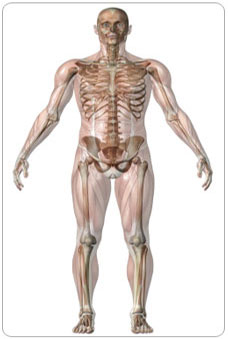Researchers have today revealed a new gene associated with osteoarthritis.

At that level of detail, no new genes were identified (although the full study has yet to be published). By imputing the data from the 1000 Genomes Project, the new study was able to scan for 7.2 million variants and revealed the association of MCF2L with osteoarthritis without requiring any new sequencing to be carried out.
"By using the 1000 Genomes Project data to add value to our original genome-wide association scan for osteoarthritis, we have uncovered a disease-associated gene that had previously remained hidden," says Dr Eleftheria Zeggini, senior author from the Sanger Institute. "We were able to analyse our results in greater detail and zoom in on variants that we hadn't been able to identify before. We hope that this approach and our findings will help to improve our biological understanding of this very painful disease."
Osteoarthritis is a complex condition and researchers have found it difficult to identify its genes. Only two loci have been found so far in European populations – GDF5 and a signal from a region on chromosome 7.
The newly identified gene, MCF2L, is found on chromosome 13 and regulates a nerve growth factor (NGF). It has been reported that when people with osteoarthritis in the knee are treated with a humanized monoclonal antibody against NGF, they experience less pain and show improvement in their movement. This suggests that MCF2L is involved in the development of osteoarthritis and provides a new focus for future research.
To ensure that the variant of MCF2L is associated with the development of osteoarthritis, the team worked with international collaborators to investigate 19,041 people with arthritis and 25,504 people without the condition. A number of centres across Europe collaborated by screening people in Iceland, Estonia, the Netherlands and the UK for the newly identified variant to corroborate the association.
Advertisement
The study's findings are based on the work of the arcOGEN Consortium, which has been funded by Arthritis Research UK and is a vital supporter of research in this area.
Advertisement
Source-Eurekalert















